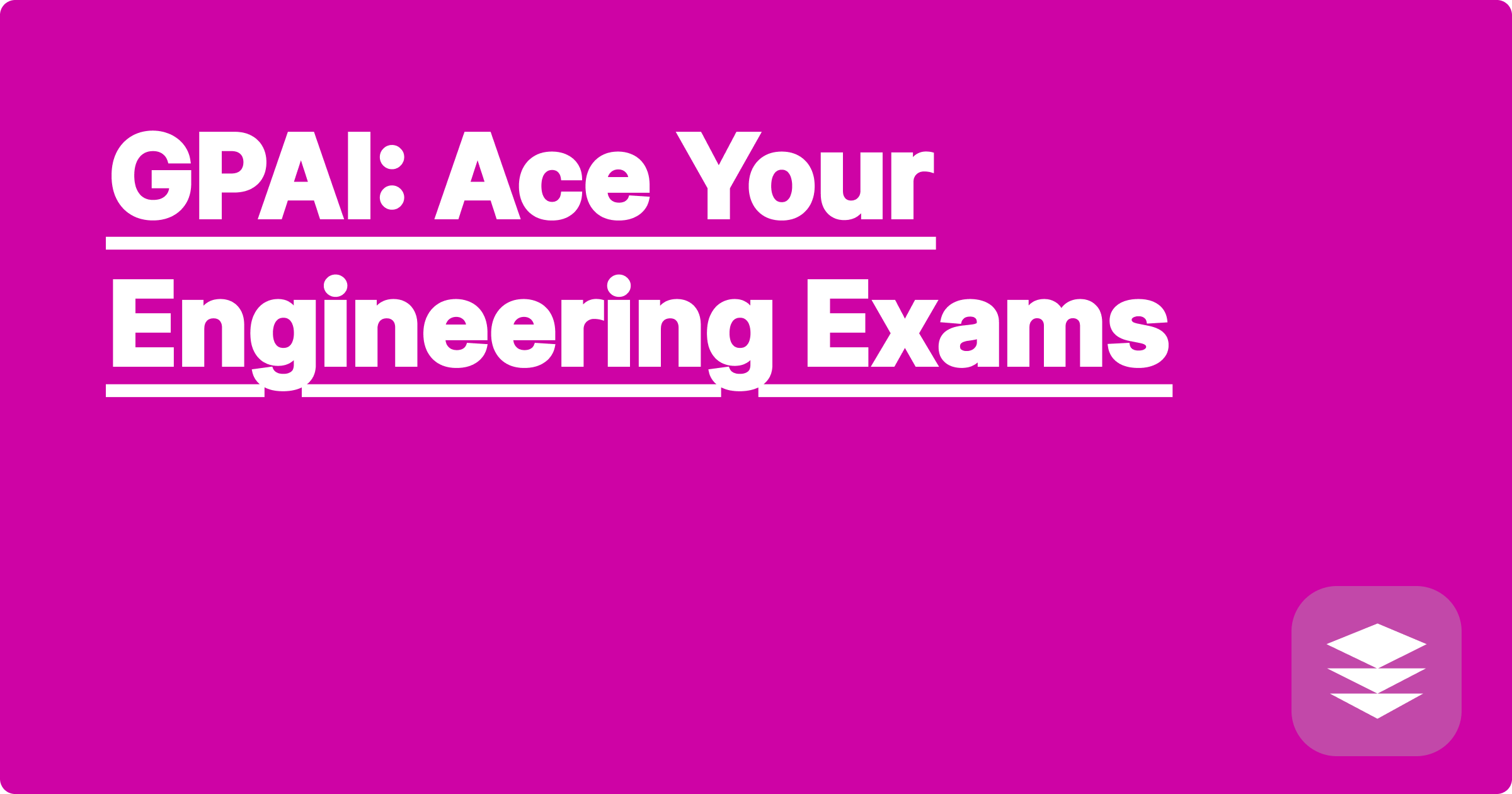
The demanding world of STEM education often leaves students feeling overwhelmed, juggling complex concepts, rigorous coursework, and the pressure to excel. The sheer volume of information to absorb and apply can be daunting, making efficient learning a crucial skill for success. Imagine having a personalized tutor available 24/7, guiding you through challenging topics, identifying your weaknesses, and tailoring learning materials to your specific needs. This is the promise of AI-powered learning platforms, offering a revolutionary approach to mastering STEM subjects and acing those daunting exams.
This blog post explores how AI, particularly through a hypothetical platform called GPAI (Generative Personalized AI), can transform your study habits and empower you to achieve your academic goals. We’ll delve into the specific challenges faced by STEM students, examine the benefits of incorporating AI into your learning routine, and provide practical examples of how these tools can be used across various disciplines. Whether you’re grappling with advanced calculus, deciphering complex chemical reactions, or writing code for your next project, AI can be your secret weapon for academic success.
STEM fields are inherently challenging. They require a deep understanding of fundamental principles, the ability to apply these principles to solve complex problems, and the dedication to persevere through difficult concepts. Students often struggle with the sheer volume of information, the abstract nature of some topics, and the pressure to perform well in highly competitive environments. Traditional study methods, like passively reading textbooks and attending lectures, can be inefficient and often fail to cater to individual learning styles. Many students find themselves spending countless hours studying without seeing significant improvement, leading to frustration and burnout. This is where AI can step in to provide a more personalized and effective learning experience.
AI-powered learning platforms like the hypothetical GPAI offer a personalized approach to learning, adapting to individual student needs and providing targeted support. GPAI can analyze your strengths and weaknesses, identify areas where you need more practice, and generate customized study plans. Imagine struggling with differential equations. GPAI could analyze your past performance, pinpoint the specific concepts you’re having trouble with, and provide targeted practice problems, explanatory videos, and even connect you with online tutors specializing in that area. Furthermore, AI tools like ChatGPT, Claude, and Wolfram Alpha can be invaluable resources for understanding complex concepts. You can use ChatGPT to explain a concept in simpler terms, Claude to summarize lengthy research papers, and Wolfram Alpha to solve complex equations and visualize data.
Integrating AI into your study routine can be seamless. Start by identifying your specific needs and challenges. Are you struggling with a particular subject? Do you have trouble managing your time effectively? Once you’ve identified your needs, explore the different AI tools available and choose the ones that best fit your learning style. For example, if you're a visual learner, you might benefit from using Wolfram Alpha to visualize mathematical concepts. If you prefer interactive learning, you might find ChatGPT helpful for asking clarifying questions and receiving immediate feedback. Begin by incorporating AI tools gradually into your existing study routine. Start with a few practice problems generated by GPAI or use ChatGPT to summarize a chapter you've just read. As you become more comfortable, gradually increase your reliance on these tools and experiment with different ways to integrate them into your workflow.
Consider a scenario where you're preparing for a thermodynamics exam. You could use GPAI to create a personalized study plan, focusing on the topics where you're weakest. GPAI could then generate practice problems tailored to your specific needs, providing immediate feedback and explanations. For example, if you're struggling with entropy calculations, GPAI could provide a series of practice problems involving different entropy formulas, such as ΔS = Q/T for reversible processes. You could also use Wolfram Alpha to visualize thermodynamic cycles and understand the relationships between different variables, like pressure, volume, and temperature. In another scenario, if you're working on a programming project, you could use AI coding assistants like GitHub Copilot to suggest code snippets, identify potential bugs, and even generate documentation.
Using AI effectively requires more than just knowing which tools are available. It’s about integrating these tools strategically into your overall learning process. Develop a structured study plan and use AI tools to supplement your existing learning methods. Don't rely solely on AI; use it as a tool to enhance your understanding and efficiency. Experiment with different AI tools and find the ones that best suit your learning style. Don't be afraid to ask for help. If you're struggling with a particular concept, use AI chatbots to ask clarifying questions or connect with online tutors. Finally, remember that AI is a tool, not a replacement for hard work and dedication. Use it wisely and combine it with effective study habits to maximize your academic potential.
To conclude, embracing AI in your STEM education is not just about keeping up with the latest technological advancements; it's about empowering yourself to learn more effectively and achieve your academic goals. By leveraging the power of personalized learning platforms like GPAI and other AI tools, you can transform your study habits, conquer challenging concepts, and unlock your full potential. Start exploring these tools today and discover how AI can help you ace your engineering exams and pave the way for a successful career in STEM. Remember, the future of learning is here, and it's powered by AI.